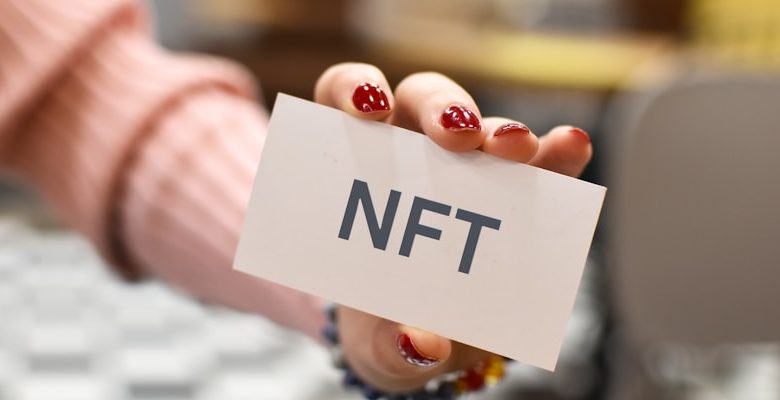How NFTs Are Revolutionizing Digital Ownership

- Understanding NFTs and their impact on digital ownership
- Exploring the world of non-fungible tokens and their implications
- The rise of NFTs: A game-changer in the digital ownership landscape
- Unpacking the concept of NFTs and their revolutionary potential
- How NFTs are reshaping the way we perceive and value digital assets
- From art to real estate: The diverse applications of NFTs in digital ownership
Understanding NFTs and their impact on digital ownership
NFTs, or non-fungible tokens, have been making waves in the digital world recently, revolutionizing the concept of ownership. Unlike cryptocurrencies such as Bitcoin or Ethereum, which are interchangeable and have the same value, NFTs are unique digital assets that represent ownership of a particular item or piece of content.
One of the key aspects of NFTs is their impact on digital ownership. By using blockchain technology, NFTs provide a secure and transparent way for individuals to buy, sell, and trade digital assets. This has opened up new possibilities for creators, artists, and collectors to monetize their work and establish ownership rights in the digital realm.
With NFTs, individuals can prove ownership of digital artwork, music, videos, and other virtual items in a way that was not possible before. This has led to a surge in interest in the NFT market, with high-profile sales making headlines around the world. The concept of digital ownership has been redefined, giving creators more control over their work and allowing collectors to truly own a piece of digital history.
Exploring the world of non-fungible tokens and their implications
Exploring the exciting world of non-fungible tokens (NFTs) opens up a whole new realm of possibilities in the digital ownership landscape. NFTs are unique digital assets that are indivisible and cannot be exchanged on a like-for-like basis. This uniqueness is what sets them apart from traditional cryptocurrencies like Bitcoin or Ethereum.
One of the key implications of NFTs is their ability to revolutionize the way we think about ownership in the digital age. By tokenizing digital assets, creators can now prove ownership of their work in a way that was not possible before. This has significant implications for artists, musicians, and other content creators who can now monetize their work directly through the sale of NFTs.
Furthermore, NFTs have the potential to disrupt the way we interact with digital content. For example, in the gaming industry, NFTs can be used to represent in-game assets such as skins, weapons, or characters. Players can buy, sell, and trade these assets with other players, creating a whole new economy within the game.
Another exciting aspect of NFTs is their potential to democratize access to rare and valuable assets. With NFTs, anyone can own a piece of digital history, whether it’s a piece of digital art, a collectible card, or a virtual real estate. This opens up a whole new world of possibilities for collectors and enthusiasts alike.
In conclusion, the world of NFTs is a fascinating and rapidly evolving space that is reshaping the way we think about digital ownership. As more industries and individuals adopt NFTs, we can expect to see even more innovative use cases emerge in the future. Whether you’re an artist looking to monetize your work or a collector looking to own a piece of digital history, NFTs offer a world of possibilities to explore.
The rise of NFTs: A game-changer in the digital ownership landscape
NFTs have been gaining significant attention in recent years, revolutionizing the digital ownership landscape in unprecedented ways. These unique digital assets have opened up a whole new world of possibilities for creators, collectors, and investors alike.
One of the key aspects that make NFTs so revolutionary is their ability to provide proof of ownership and authenticity through blockchain technology. This ensures that every NFT is one-of-a-kind and cannot be replicated or forged, giving owners a sense of security and exclusivity.
Moreover, the rise of NFTs has democratized ownership, allowing individuals to buy, sell, and trade digital assets with ease. This has paved the way for new revenue streams for artists, musicians, gamers, and other content creators who can now monetize their work directly through NFT marketplaces.
As more industries and individuals recognize the potential of NFTs, we are witnessing a shift in how we perceive and value digital assets. The concept of digital ownership is being redefined, with NFTs at the forefront of this revolution. It is truly a game-changer in the digital landscape, offering endless possibilities for creators and collectors to explore.
Unpacking the concept of NFTs and their revolutionary potential
NFTs, or Non-Fungible Tokens, have been gaining significant attention in the digital world lately. These unique tokens are revolutionizing the concept of digital ownership by providing a way to authenticate and prove ownership of digital assets using blockchain technology.
Unlike cryptocurrencies like Bitcoin or Ethereum, which are fungible and can be exchanged on a one-to-one basis, NFTs are one-of-a-kind assets that cannot be replicated. This uniqueness is what gives NFTs their value and makes them ideal for representing digital art, collectibles, virtual real estate, and more.
One of the key aspects of NFTs is their ability to create scarcity in the digital realm. By tokenizing digital assets and making them unique, creators can establish a sense of exclusivity and rarity that can drive up demand and value. This has opened up a whole new world of possibilities for artists, musicians, and other content creators looking to monetize their work.
Furthermore, NFTs have the potential to revolutionize ownership rights in the digital space. With traditional digital assets, ownership is often murky, and it can be challenging to prove authenticity and ownership. NFTs solve this problem by providing a transparent and immutable record of ownership that is stored on the blockchain, making it easy to verify and transfer ownership.
How NFTs are reshaping the way we perceive and value digital assets
NFTs have brought a paradigm shift in the way we perceive and assign value to digital assets. These unique tokens have revolutionized the concept of digital ownership by providing a secure and immutable way to verify authenticity and ownership of digital items. Unlike traditional digital assets, which can be easily replicated or shared, NFTs are one-of-a-kind and cannot be duplicated.
NFTs have created a new market for digital collectibles, art, and other unique assets that were previously difficult to monetize. This has opened up opportunities for creators to showcase and sell their work in a way that was not possible before. The blockchain technology underlying NFTs ensures transparency and security, which has led to a surge in interest from both creators and collectors alike.
The ability to tokenize digital assets has also enabled fractional ownership, allowing multiple investors to own a share of an asset. This has democratized access to valuable digital items, making it possible for a wider audience to participate in the digital economy. As a result, NFTs have reshaped the way we perceive and interact with digital assets, creating new possibilities for ownership and investment in the digital space.
From art to real estate: The diverse applications of NFTs in digital ownership
NFTs have opened up a world of possibilities for digital ownership beyond just art. One of the most notable areas where NFTs are making an impact is in real estate. By tokenizing properties, individuals can buy and sell fractional ownership in real estate, allowing for greater liquidity and accessibility in the market.



